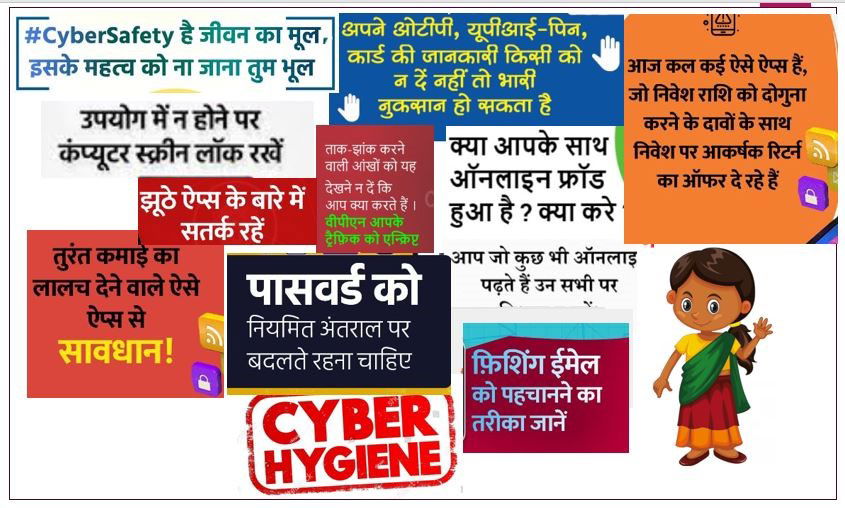ENABLING CYBER HYGIENE
Cyber hygiene is a reference to the practices and steps that users of computers and other devices take to maintain system health and improve online security. These practices are often part of a routine to ensure the safety of identity and other details that could be stolen or corrupted.

As a parent, you’ve probably taught your child to wash their hands, brush and floss their teeth, cover their mouth when they cough, and shower regularly.
These are all important habits for creating a solid foundation of personal hygiene. Just like building personal hygiene early on is essential, it’s also vital for children to learn cyber hygiene.
Since children spend 4-6 hours online per day, they need to know early on how to stay safe online.
Cyber Crime in India India reported 300% increase in cyber-attacks in 2020 with 1.16 million cases.
Attacks on Indian government agencies more than doubled in 2022 India emerged as the most frequently targeted country in the world. Indian agencies from Oil India Limited, Ladakh Power Grid, UIDAI and other agencies have allegedly been attacked.
People were cheated of Rs 168.5 crore in 2023 so far compared with Rs 42.6 crore during the same period previous year At least 12% of all unique user data found in cybercrime marketplaces belonged to Indians


